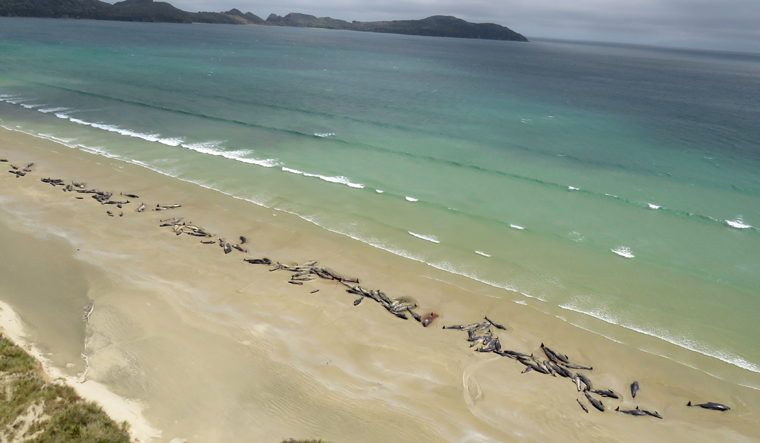About 100 pilot whales and bottlenose dolphins have been found stranded on the remote Chatham Islands, about 800 km (497 miles) off New Zealand’s east coast. Most of the creatures were stranded over the weekend, but the rescue efforts have been hampered due to the remote location of the island.
According to New Zealand's Department of Conservation, a total of 97 pilot whales and three dolphins died. “Only 26 of the whales were still alive at this point, the majority of them appearing very weak, and were euthanised due to the rough sea conditions and almost certainty of there being great white sharks in the water which are brought in by a stranding like this,” DOC Biodiversity Ranger Jemma Welch told Reuters.
While mass stranding has been common in modern history, but is the cause for the same, seems to be a matter of puzzlement for marine biologists.
The Chatham Islands are a hotspot for whale stranding. Several reasons including sickness, navigational error, geographical features, a rapidly falling tide, being chased by a predator, or extreme weather are thought to be reasons why stranding takes place. The whales will be left to decompose naturally— several of them had to be euthanised.
In one of the world’s biggest mass whale stranding, several hundred whales died in shallow waters off the Australian coast in September.
In 1918, in a mass stranding, 1000 animals died on the Chatham Islands







